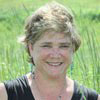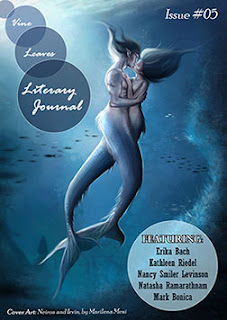 Jeanne Lyet Gassman
Jeanne Lyet Gassman lives with her husband and son in the desert west of Phoenix, Arizona, but she dreams often of snow-covered mountains with pine-scented breezes. She believes in the power and beauty of language and loves helping other writers. When she isn’t writing, she works as a freelance editor and teaches creative writing workshops to writers’ groups and individuals in the Phoenix metro area.
She holds an MFA in Writing from Vermont College of Fine Arts. She writes creative nonfiction, poetry, and fiction, but her first love is fiction. Her work has appeared recently in
Switchback, Barrelhouse, and
LQQK, among others. An excerpt from her unpublished novel, The Blood of A Stone, is forthcoming in
Assisi: An Online Journal of Literature and Arts. Her awards include fellowships from Ragdale and the Arizona Commission on the Arts. She is currently working on a novel about a family of downwinders who were adversely affected by the radioactive fallout from the atomic bomb tests in Nevada in the 1950s and 1960s.
To learn about opportunities for writers, including contests, grants, and calls for submission, please visit Jeanne’s blog,
Jeanne’s Writing Desk. To get to know Jeanne and her work, please visit her
website or connect with her on
Twitter.
interview by Marcia Peterson
WOW: Congratulations on winning first place in our Fall 2012 writing contest! What inspired you to enter the contest?
Jeanne: I follow WOW! on Facebook and am a great fan of all that you offer for women writers. When I saw the announcement for the 2012 Fall Flash Fiction Contest, I had just finished a draft of "Haboob Season" and thought that it might be a good candidate for the competition, so I revised the story and entered the contest. I'm glad I did!
WOW: Can you tell us what encouraged the idea behind your story, "Haboob Season?" It’s a chilling story, despite all the heat.
Jeanne: The story has its origin in several truths: My husband did retire recently, and our children have just graduated from college. A close friend of mine also lost her husband last year. Although his death wasn't unexpected, she suddenly became a very young widow, which changed her lifestyle in dramatic ways. The summer of 2012 was one of the hottest summers in Phoenix on record with weeks of 100+ degree days and numerous large and small dust storms. The press began calling the big dust storms "haboobs." It's such a wonderful word, so much more evocative than "dust storm," and it made me think about what these massive storms could represent in one's personal life, how everything is so transient. Despite our best intentions, one swift change can sweep everything away, much in the same way a "haboob" sweeps through a metropolitan area, leaving devastation in its wake. The final stroke of inspiration came from a casual comment from a friend, who asked me how we coped with the dog days of summer in Phoenix. I put all of these elements--dust storms, sudden loss and change, the misery of summer in Phoenix--together, and "Haboob Season" was born.
For those of you who have never seen a haboob, I've enclosed a link to a video of one passing over Phoenix:
http://www.youtube.com/watch?v=vYnuzoH5oBA
WOW: Fascinating video, thanks for sharing! Since you write in several different genres, including fiction, nonfiction and poetry, how do you decide what you’re going to work on at any given time? Do you find one type of writing more challenging than the others?
Jeanne: Well, fiction is my first love. If I have no pressing deadlines from editors or publishers, I spend my time working on my novels or a work of short fiction. I've written some creative nonfiction, which bears many similarities to fiction, but the straight nonfiction I write is usually solicited work. For several years, I wrote a column on the craft and business of writing, "Jeanne's Writing Desk," for an e-newsletter called
Mike's Writing Newsletter. The column had fixed deadlines, so I had to write my nonfiction on a schedule. If someone contacts me and asks me to write a blog post or nonfiction piece, I discuss their needs and adjust my writing projects accordingly.
I'm currently finishing the edits on my first novel,
The Blood of A Stone, for a publisher. Since I have a deadline to turn in the edits, that is my top priority at the moment. Once those edits are complete, I plan to return to the work on my second novel,
The Double Sun, a more contemporary story about a family of downwinders, people who suffered adverse effects from radioactive fallout from the atomic bomb tests in Nevada. I don't have a publisher for that book, but I do have an internal deadline/goal for the first draft. In general, I work well with deadlines, and if I don't have real ones, I like to create personal deadlines.
Poetry is definitely the most challenging genre for me. It requires not only precision of language but a strong sense of rhythm and motion. I adore good poetry and wish I were a better poet, but I would be the first to admit that writing poetry is not my strength.
WOW: Describe a typical day spent writing. Do you have any unusual writing habits?
Jeanne: I start every day by filling out my day planner. I use this time to prioritize my writing goals and organize my schedule. Then I walk the dog. Good writing takes place in the mind as much as it does on paper or the computer screen, and during our walks, I think about scenes, snippets of dialogue, resolve plot issues, etc. Once we return home, I sit down at my desk and begin work on my writing project of the day.
As I mentioned earlier, I tend to be very goal and project oriented. Rather than focus on a minimum daily word count or a minimum number of hours at the keyboard, I find I'm most productive when I concentrate on reaching specific milestones by specific dates. For example, if I'm working on my novel, I may set a goal on Monday to complete the next two chapters by Friday. This allows me to break my daily goals into smaller units, writing sections of those two chapters every day. If I'm planning to enter a writing contest or have a deadline for submitting a story to a literary magazine, I set a deadline for the first draft and a deadline for the revisions of that draft. Of course, if an editor has asked me to write a nonfiction piece, I usually have a fixed deadline and have to work toward that. I write five to six days a week for approximately 3-4 hours a day. This may not seem like a lot, but the steady effort makes it possible to accumulate a fair amount of material over time.
My daughter said I should also mention that my home office has a residential cat who contributes his editing advice. Our cat eats on the corner of my desk, sleeps in a special chair behind me, and reminds me that petting a kitty is the best solution to writer's block.
WOW: We talk a lot here on the blog about walking as a great tool for writing inspiration. I like how you focus on specific milestones by specific dates too. That seems like a great strategy! You mentioned that you’re currently working on a novel. How is that project going?
Jeanne: Actually, I'm working on two novels right now. I'm editing my first novel,
The Blood of A Stone, a historical story set in first century A.D. Palestine, and I'm finishing the first draft of my second novel,
The Double Sun, the story about a family of downwinders. Both projects are coming along nicely. I will be turning in my final edits to the publisher for the first book at the end of March and hope to be able to announce a publication date shortly thereafter. I have 4-5 chapters left to write before I have a complete draft of the second book. My goal (that word again!) for the second book is to have the first draft completed by the end of this summer.

One tool I've found particularly useful for writing novels is the story board. In fact, I have a story board for the second book, since it's still a work in process, and a revision board for the book I'm currently editing. I use a large bulletin board, but some people pin notes to a wall or even write on the wall. I've enclosed a picture of my story board for
The Double Sun to give people a visual representation of how this works. This photo was taken earlier in the process of writing the book, so I now have more scene cards than what you see here. Since The
Double Sun spans over 30 years, you will notice there are dates for each section. Beneath those dates are chapter titles. Under each chapter title I've posted an index card with a one-sentence description of each major scene in that chapter. On the right-hand side of the bulletin board I've posted photos of locations, events, and inspiring articles. This story board, or inspiration board as I like to think of it, provides me with a wonderful big-picture view of the novel-in-progress. By studying this board, I can easily see where I may need an additional scene, where there are too many similar scenes, where I need to cut the flab, etc. Interestingly enough, I've been writing the chapters in this book out of order, drafting specific chapters as they come to me rather than plodding along from the beginning to the end. The story board makes that possible.
WOW: Thanks for sharing a visual of your storyboard process, and for chatting with us today, Jeanne! Before you go, do you have any advice for beginning flash fiction writers?
Jeanne: I'm flattered that you'd like my advice on writing flash, as I consider myself a novice in this genre! However, the best advice I can give is to read flash fiction--lots of it. Study why the author leaves something out, how the author uses dialogue, how description moves the story forward, etc. I like to think of flash fiction as building a doll-size version of a real house on a small patch of real estate. Just like a full-size house, you have all the necessities: bathrooms, living space, bedrooms, etc., but they're smaller and limited in scope. Every single word must count. There's no room in flash for meandering or tangents. This means that the words you select carry a lot of weight; they need to develop character, set the scene, move the plot forward, or do several of these things at the same time. It also helps to have a destination in mind. If you know where you want your story to end, you can push toward that ending. My final piece of advice is to target your markets and submit your work. You'll never get your writing published if you don't send it out.
Thank you so much for inviting me to share my thoughts on the writing life. It has been such a pleasure to work with WOW!
***
The Spring 2013 Flash Fiction Contest is OPEN!
Find out more:
http://wow-womenonwriting.com/contest.php
***
































